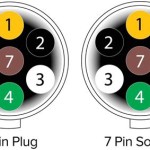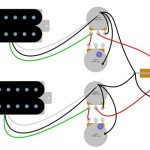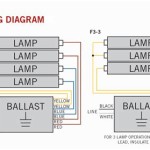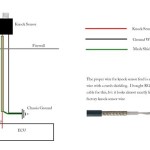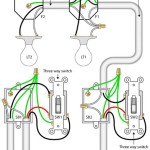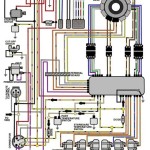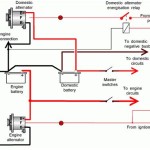A trailer wiring tester is a tool used to verify the proper electrical connections between a towing vehicle and a trailer. It ensures each wire is correctly attached to the corresponding terminal on the vehicle’s electrical system and trailer lighting system.
Trailer wiring testers are important for ensuring the safe and reliable operation of trailer lights, turn signals, brake lights, and other electrical components. They help identify incorrect wiring or damaged connections that could potentially lead to lighting malfunctions or even electrical fires. A significant historical development in trailer wiring tester technology was the introduction of digital multimeters, which provide more precise and comprehensive testing capabilities than traditional analog testers.
In this article, we will delve deeper into the specific features, types, and applications of trailer wiring testers, providing valuable insights for professionals and individuals who rely on towing vehicles and trailers for various purposes.
Understanding the key aspects of trailer wiring testers is crucial for ensuring their effective utilization in maintaining safe and reliable towing operations. These aspects encompass various dimensions related to the design, functionality, application, and performance of trailer wiring testers.
- Functionality: Tests electrical connections, identifies faults
- Accuracy: Provides precise and reliable test results
- Durability: Withstands harsh conditions, ensuring longevity
- Ease of Use: Simple and intuitive operation for user convenience
- Types: Analog, digital, wireless, heavy-duty
- Applications: Automotive, marine, RV, commercial
- Safety: Essential for preventing electrical issues and accidents
- Compatibility: Designed for specific vehicle and trailer configurations
Functionality
The functionality of trailer wiring testers revolves around their ability to assess the electrical connections between towing vehicles and trailers, pinpointing any faults or discrepancies. This multifaceted process encompasses several key aspects that contribute to the overall effectiveness and accuracy of the tester.
- Circuit Continuity Check: Tests the integrity of electrical circuits by verifying the flow of current through wires and components, ensuring a complete path for electricity.
- Ground Fault Detection: Identifies issues related to grounding, where electrical current takes an unintended path, potentially causing electrical malfunctions or safety hazards.
- Short Circuit Detection: Detects short circuits, which occur when electrical current flows through an unintended low-resistance path, leading to excessive heat and potential damage.
- Trailer Light Functionality Test: Verifies the proper operation of trailer lights, including brake lights, turn signals, and running lights, ensuring visibility and safety on the road.
These facets of trailer wiring tester functionality work in conjunction to provide a comprehensive assessment of the electrical system, enabling users to diagnose and resolve any issues promptly, ensuring the safe and reliable operation of trailers and towed vehicles.
Accuracy
The accuracy of trailer wiring testers is a cornerstone of their effectiveness in ensuring the proper functioning and safety of towing systems. Precise and reliable test results enable users to pinpoint electrical faults and discrepancies with confidence, leading to timely resolutions and enhanced safety on the road. Accurate testers provide consistent and dependable readings, reducing the likelihood of false positives or negatives, which can be critical in preventing electrical issues and potential accidents.
A key aspect of accuracy in trailer wiring testers lies in their ability to detect intermittent faults, which can be challenging to identify using less precise methods. Intermittent faults occur sporadically, making them difficult to diagnose, and can pose significant safety risks if left unattended. Accurate testers can capture these elusive faults, allowing for prompt intervention and repairs, preventing potential breakdowns or hazardous situations.
In real-life applications, the accuracy of trailer wiring testers has proven invaluable in various scenarios. For instance, in the automotive industry, accurate testers help technicians quickly identify electrical problems, reducing downtime for vehicles and ensuring the safety of drivers and passengers. Similarly, in the RV sector, accurate testers empower owners to maintain their vehicles confidently, ensuring a trouble-free and enjoyable travel experience.
In conclusion, the accuracy of trailer wiring testers is a critical component of their functionality, enabling users to perform thorough and reliable electrical system assessments. By providing precise and dependable test results, accurate testers play a vital role in ensuring the safety and efficiency of towing operations, preventing potential accidents, and contributing to the overall reliability of vehicles and trailers.
Durability
In the realm of trailer wiring testers, durability stands as a critical component, directly influencing the longevity and reliability of these essential tools. The harsh conditions often encountered in towing applications, such as exposure to moisture, dirt, and extreme temperatures, demand testers that can withstand these challenges without compromising their functionality.
A durable trailer wiring tester is constructed using robust materials and components, ensuring resistance to wear and tear. The housing is typically made of durable plastics or metals, providing protection against impact and corrosion. Internal components, such as wiring and connectors, are designed to withstand vibration, shock, and moisture, ensuring reliable performance even in demanding environments.
Real-life examples abound where durability has proven invaluable. In construction and industrial settings, trailer wiring testers are subjected to rough handling, exposure to dust and debris, and extreme temperatures. Durable testers can withstand these conditions, providing accurate and reliable results, ensuring the safe operation of trailers and towed equipment.
The practical applications of understanding the durability of trailer wiring testers extend to various industries and scenarios. In the automotive sector, durable testers empower technicians to perform thorough electrical system checks in harsh garage environments. For RV enthusiasts, durable testers provide peace of mind, knowing that their equipment can withstand the rigors of outdoor adventures.
In conclusion, the durability of trailer wiring testers is a crucial factor in ensuring their longevity and reliability. By withstanding harsh conditions, durable testers enable users to conduct accurate and dependable electrical system assessments, supporting the safe and efficient operation of trailers and towed vehicles across diverse applications.
Ease of Use
In the realm of trailer wiring testers, ease of use emerges as a critical component, directly influencing the accessibility and effectiveness of these essential tools. A simple and intuitive user interface empowers individuals with varying technical backgrounds to confidently perform electrical system checks, ensuring the safe and reliable operation of trailers and towed vehicles.
User-friendly trailer wiring testers typically feature straightforward controls, clear displays, and step-by-step instructions. This intuitive design minimizes the learning curve, allowing users to quickly grasp the tester’s functionality and obtain accurate results. Real-life examples abound where ease of use has proven invaluable. In the automotive industry, technicians appreciate user-friendly testers that enable quick and efficient troubleshooting, reducing vehicle downtime. For RV enthusiasts, intuitive testers provide peace of mind, empowering them to maintain their vehicles confidently, enhancing their travel experiences.
The practical applications of understanding the ease of use of trailer wiring testers extend to various industries and scenarios. In the construction sector, user-friendly testers simplify electrical system checks for heavy equipment, ensuring safety and preventing costly delays. In the marine industry, intuitive testers empower boat owners to maintain their electrical systems, ensuring a trouble-free and enjoyable time on the water.
In conclusion, the ease of use of trailer wiring testers is a critical factor in ensuring their accessibility and effectiveness. Simple and intuitive designs empower users to confidently perform electrical system checks, contributing to the safe and reliable operation of trailers and towed vehicles across diverse applications, whether in automotive workshops, RV parks, or construction sites. Understanding the importance of user-friendly testers allows manufacturers to create accessible and efficient tools that meet the demands of a wide range of users, ultimately enhancing the overall safety and reliability of towing operations.
Types
The landscape of trailer wiring testers encompasses a diverse range of types, each catering to specific needs and applications. Understanding the distinctions between analog, digital, wireless, and heavy-duty testers empowers users to select the most appropriate tool for their requirements, ensuring effective electrical system assessments and safe towing operations.
- Analog Testers: Basic and cost-effective, employing needles or dials to indicate electrical flow or resistance. Suitable for basic continuity and voltage checks.
- Digital Testers: More advanced and precise, displaying numerical values on a digital screen. Offer additional features like fault code retrieval and LED indicators.
- Wireless Testers: Provide greater convenience and flexibility, eliminating the need for physical connections between the tester and trailer. Ideal for testing hard-to-reach areas.
- Heavy-Duty Testers: Designed for commercial and industrial applications, featuring robust construction and advanced functionality. Capable of handling high amperage and voltage loads.
The choice of tester type depends on factors such as the size and complexity of the towing system, the desired level of accuracy and functionality, and the specific testing environment. Analog testers remain popular for basic checks, while digital testers offer enhanced precision and features. Wireless testers provide convenience and versatility, and heavy-duty testers cater to demanding applications. Understanding the capabilities and limitations of each type allows users to make informed decisions, ensuring the safe and reliable operation of their trailers and towed vehicles.
Applications
The versatility of trailer wiring testers extends to a wide range of applications across diverse industries, encompassing automotive, marine, RV, and commercial sectors. Each application presents unique requirements and challenges, demanding tailored testing solutions to ensure the safe and reliable operation of trailers and towed vehicles.
- Automotive: In the automotive industry, trailer wiring testers play a crucial role in maintaining and troubleshooting electrical systems of vehicles towing trailers. They enable technicians to quickly identify faults in lighting, braking, and signaling systems, ensuring road safety and compliance with regulations.
- Marine: Within the marine sector, trailer wiring testers are essential for ensuring the proper functioning of boat trailers andtrailers. They help boat owners verify the integrity of electrical connections, preventing potential hazards such as lighting malfunctions or trailer detachment.
- RV: For recreational vehicle (RV) enthusiasts, trailer wiring testers provide peace of mind by enabling them to maintain their RV’s electrical system. They can proactively check for any issues before embarking on road trips, ensuring a safe and enjoyable travel experience.
- Commercial: In commercial applications, trailer wiring testers are indispensable tools for fleet managers and transportation professionals. They facilitate regular maintenance and inspections of trailers used for hauling cargo, ensuring compliance with safety regulations and minimizing downtime.
Understanding the diverse applications of trailer wiring testers underscores their importance as essential tools across various industries. By catering to the specific requirements of each application, trailer wiring testers contribute to the safe and efficient operation of trailers and towed vehicles, enhancing overall safety on the road, water, and in commercial settings.
Safety
The paramount importance of trailer wiring testers lies in their role as guardians of safety. Electrical faults and accidents pose significant risks to individuals, vehicles, and property, making the prevention of such incidents a non-negotiable priority. Trailer wiring testers serve as indispensable tools in achieving this objective by identifying and resolving electrical issues before they escalate into hazardous situations.
A properly functioning trailer wiring tester is a critical component of any comprehensive safety strategy for towing operations. By enabling users to thoroughly inspect and verify the integrity of electrical connections between towing vehicles and trailers, these testers play a proactive role in preventing electrical fires, lighting malfunctions, and other potentially catastrophic events.
Real-life examples abound where trailer wiring testers have proven their worth in ensuring safety. In the automotive industry, these testers are essential for identifying faulty wiring or loose connections that could lead to electrical fires or lighting failures while towing. Similarly, in the RV sector, trailer wiring testers empower RV owners to proactively check their electrical systems, preventing potential hazards such as brake light malfunctions or trailer detachment.
Understanding the profound impact of trailer wiring testers on safety underscores their value as indispensable tools for anyone involved in towing operations. By recognizing the critical role these testers play in preventing electrical issues and accidents, individuals can make informed decisions about their use, contributing to a safer environment on the road and beyond.
Compatibility
The compatibility of trailer wiring testers with specific vehicle and trailer configurations plays a pivotal role in ensuring accurate and reliable electrical system assessments. Trailer wiring testers are designed to match the unique electrical characteristics of different vehicles and trailers, taking into account factors such as voltage, amperage, and pin configurations.
When a trailer wiring tester is compatible with the vehicle and trailer being tested, it can establish a proper connection and accurately assess the electrical flow. This compatibility minimizes the risk of false readings or incorrect interpretations, leading to more precise troubleshooting and effective repairs. Real-life examples illustrate the importance of compatibility. In the automotive industry, technicians rely on trailer wiring testers that are compatible with the specific make and model of the towing vehicle and trailer to ensure proper electrical system functioning, preventing potential hazards like lighting malfunctions or brake failures.
Understanding the compatibility of trailer wiring testers empowers users to select the most appropriate tester for their specific needs. By matching the tester’s capabilities with the vehicle and trailer configurations, individuals can obtain accurate and reliable test results, contributing to the safe and efficient operation of their towing systems. This understanding also enables manufacturers to design and produce trailer wiring testers that cater to the diverse requirements of the towing industry.
In conclusion, compatibility between trailer wiring testers and specific vehicle and trailer configurations is a crucial factor in ensuring the accuracy and reliability of electrical system assessments. By considering the unique electrical characteristics of different vehicles and trailers, compatible trailer wiring testers provide valuable insights, enabling users to proactively identify and resolve electrical issues, ultimately enhancing the safety and performance of towing operations.
![4Way Flat Trailer Wiring Tester [NickelPlated Copper Terminals] [Male](https://i0.wp.com/i5.walmartimages.com/asr/5788ed83-c3f6-470a-af50-d6ba698f70d0.fd6a8bb514f466c7c418b833d6a4f70f.jpeg?w=665&ssl=1)

![5Way Flat Trailer Wiring Tester [NickelPlated Copper Terminals] [Male](https://i0.wp.com/i5.walmartimages.com/asr/b388fd16-3df7-4c60-9c28-1ad4890fde65_1.f08952343c87cdd166ee51506533b9f2.jpeg?w=665&ssl=1)







Related Posts


